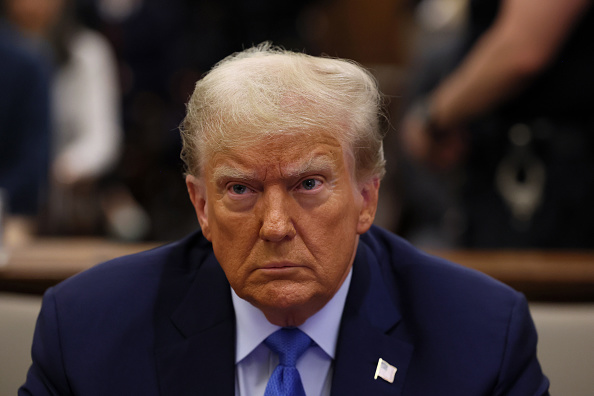
(Photo by Brendan McDermid-Pool/Getty Images)
Last week Donald Trump’s lawyers marched into the Southern District of New York and announced that they were removing their client’s criminal case in Manhattan to federal court.
It was an odd maneuver, coming a year after Judge Alvin Hellerstein unceremoniously booted Trump’s first claim that he was doing official president stuff when he reimbursed Michael Cohen for the Stormy Daniels hush money payment and three whole months after the jury reached its verdict in the state case. The applicable statute says that removal should take place within 30 days of arraignment, although it does allow for later filing with permission of the judge for good cause shown. And indeed the filing was immediately kicked for being docketed without leave of the court.

Plugging The Profit Leaks: How Your Firm Can Stop Burning Money
Join the webinar on September 25th and learn some quick wins you can implement right away.
Trump spox Stephen Cheung assured MSNBC’s Lisa Rubin that this was all a simple misunderstanding.
“In a standard procedural move, today, the clerk’s office asked President Trump’s legal team to file in a specific format and we are working with them to make sure it is properly filed on the electronic system,” he insisted.
This was sort of true, at least for a couple days. But yesterday, when the court reopened, Trump’s lawyers Emil Bove and Todd Blanche refiled their document attached to a breezy, two-page memorandum of law suggesting that there was very definitely “good cause shown” for removal, which Judge Hellerstein would know if he read the motion they filed last week.
This was perhaps a strategic error. Although in light of the brush off they got last year, it’s unlikely that a more deferential approach would have changed the outcome. The court was utterly unreceptive to the argument that Trump is entitled to federal removal because official acts evidence was wrongly admitted at his state trial, and/or Justice Juan Merchan is too biased to sentence him on September 18.

Why Law Firms Are Moving Beyond The Billable Hour
Explore 5 expert-backed reasons law firms are rethinking the billable hour and how legal billing software is leading the way.
“This Court does not have jurisdiction to hear Mr. Trump’s arguments concerning the propriety of the New York trial,” Judge Hellerstein wrote dismissively.
“Instead, the proper recourse for parties seeking to remedy alleged errors made during a state trial is to pursue a state appeal or, at the highest level, to seek review from the Supreme Court of the United States,” he went on. “It would be highly improper for this Court to evaluate the issues of bias, unfairness or error in the state trial. Those are issues for the state appellate courts.”
As for Trump’s insistence that the immunity decision changes everything, the court scoffed that “Nothing in the Supreme Court’s opinion affects my previous conclusion that the hush money payments were private, unofficial acts, outside the bounds of executive authority.”
And so it’s on to the Second Circuit, where Trump has already docketed his appeal. He has not, however, moved to expedite it — at least as of this writing. Which means that it’s highly unlikely that he’s going to get relief in time to put off the sentencing he so dreads.
In the meantime, the District Attorney’s Office in Manhattan sent Justice Merchan a letter last week which was published to the docket on Tuesday. It reiterates that the state takes no position on his request to postpone his sentencing but observes that his constant bellyaching about it coming so close to the election is RICH considering that Trump himself spammed the court with garbage motions for two straight years.
We note that the concerns defendant expresses about timing are a function of his own strategic and dilatory litigation tactics: This second notice of removal comes nearly ten months after defendant voluntarily abandoned his appeal from his first, unsuccessful effort to remove this case; three months after he was found guilty by a jury on thirty-four felony counts; and nearly two months after defendant asked this Court to consider his CPL § 330.30 motion for a new trial.
They tactfully omit the month-long delay Blanche and Bove netted by falsely accusing the DA of withholding evidence on the eve of trial.
Pepperidge Farm remembers! Now let’s see if the Second Circuit remembers, too.
People of The State of New York v. Trump [Docket via Court Listener]
Liz Dye lives in Baltimore where she produces the Law and Chaos substack and podcast.